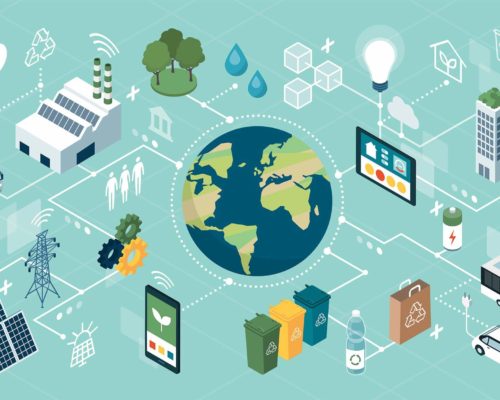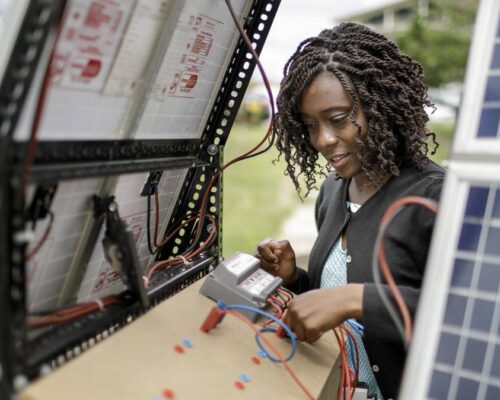Articles
Climate Change in Australia: How Will Labour Government Address it?
Australia’s latest plans to fight climate change and transform the country into a clean energy superpower are a welcome shift after a period of frustration.
Technological Innovation Examples: A Balancing Act for Climate Impact
Technology plays an important role in dictating how the world develops. It has helped humans advance, and it exists across all industries. However, innovations that exploit the environment do come with consequences. We are still looking for a balance between innovation, sustainability and progress. But, time is running out.

Best Technology Solutions For Climate Change Mitigation
Technology has a pivotal role to play in climate change mitigation. We need ways to efficiently harness renewable energy while reducing the climate impacts we have already created. While our current technology is a good start, we will need to find ways to continually speed up decarbonisation.
Should the G7 Invest In Gas Again? – Podcast
In this episode of Energy Insights podcast, Friederike Roder speaks to Energy Tracker Asia about the recent G7 summit 2022, where leaders of the globe's richest nations decided to invest in gas to shore up global energy supplies amidst a global energy crisis.

How Southeast Asia Is Faring in the EV Race
As people become more aware of climate issues, countries are starting to look towards EVs as a way to decarbonise. This has resulted in many governments pushing for measures to electrify road transport. Investors are also increasingly turning to the EV ecosystem as an attractive, long-term investment.

Technology and Climate Change: Taking a Look At the Policy Gap
The world is rapidly developing technology to slow climate change. However, global policy to support this shift is slow, leaving local governments responsible. This has led to vast policy differences across regions, making it challenging for the world to meet the required decarbonisation goals.
The Cost of Sustainability for Asia is Lower than the Benefits
As one of the most vulnerable regions to climate change, Asia has virtually nothing to lose from the looming energy transition. While investments are needed, the cost of sustainability is negligible compared to what the continent stands to gain.
Steel Producers Are Slow To Reduce Emissions
Steel plays an integral role in our modern world, yet it is also known for its high rate of emissions. One way to curtail these emissions is by implementing electric arc furnaces in production. While some countries have adopted this technology, others continue to develop facilities reliant on heavy-emitting technologies. Experts believe the steel industry is falling behind and may hinder the world from reaching net-zero by 2050.
How to Reduce the Music Industry’s Climate Impact
Aside from a couple of bright examples, the music industry isn't the most vocal climate advocate. Fans, bands, tour managers, streaming companies and event organisers should team up to reduce the excessive climate impact of the industry.
2022 Heat Wave in India and Pakistan – New Scientific Report
The World Weather Attribution Indian Pakistan heatwave study is a reminder that the climate crisis grows more severe by the day.
The Economic Benefits of Renewable Energy for Asia: Crunching the Numbers
The transition from fossil fuels to renewable energy in Asia will unleash massive economic benefits, including expanding the job market, ensuring steady GDP gains and hedging the unpredictable fossil fuel prices.
Promising Renewable Energy Statistics 2022 – Revealed By New Global Status Report
Despite the tremendous growth in new renewable energy additions, the energy system transformation is sluggish and fossil fuels continue to be the backbone of the global energy system. Without more engagement on the political front, global decarbonisation will remain a pipe dream.
Most Popular
Most Popular
Categories
-
9
-
33
-
126
-
4
-
17
-
43
-
52
-
11
-
10
-
15
-
24
-
6
-
6
-
247
-
195
-
13
-
23
-
1
-
1
-
23
-
38
-
41
-
84
-
18
-
81
-
41
-
17
-
10
-
40
-
41
-
86
-
284
-
21
-
39
-
35
-
10
-
41
-
36



